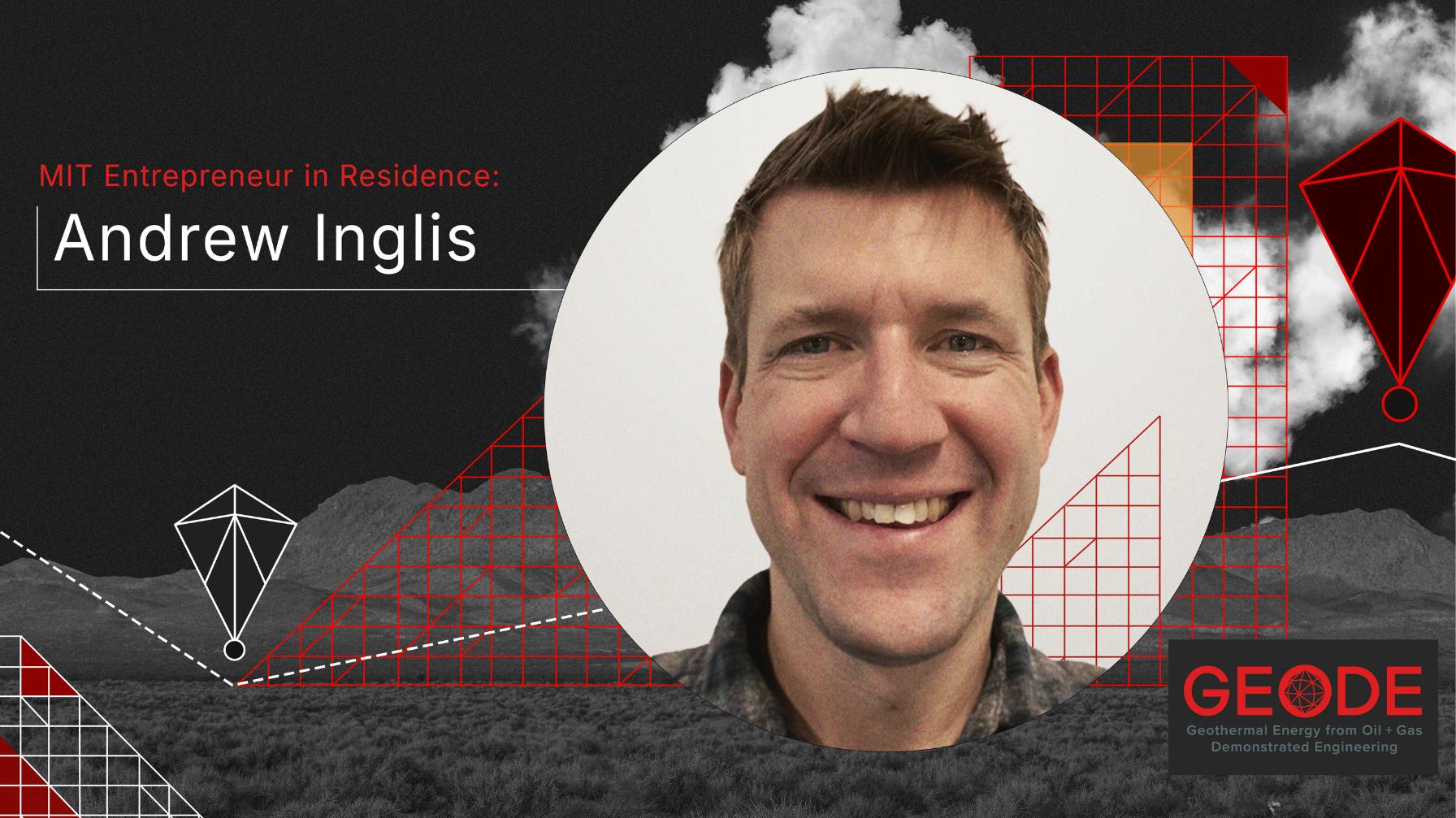
In October 2024, GEODE and MIT Proto Ventures announced that Andrew Inglis was hired as GEODE’s Geothermal Entrepreneur in Residence, a new venture builder role focused on geothermal technology. The goal was clear: Andrew would explore MIT’s research ecosystem to discover translatable and commercializable technologies, launch startups to bring these innovations to market, and accelerate geothermal’s impact on the world.
Andrew recently attended the George Stutz Student Days event, held July 31 – August 2, 2025, at the University of Nevada, Reno. Surrounded by students, researchers, and industry professionals, he reflected on his role at MIT and the importance of connecting universities with the geothermal sector. We caught up with him during the event to talk about his journey so far and the lessons he’s learned.
It’s been nearly a year since you were hired as GEODE’s Entrepreneur in Residence at MIT Proto Ventures. How’s it going?
The experience has been very positive. It’s exciting to be part of a university environment where there’s an opportunity to both learn and teach about entrepreneurship. The key is building effective relationships with professors in order to identify promising technologies and ideas in the lab. By doing this, it’s possible to help move innovations—particularly in the geothermal space—out of the research phase and into real-world applications. This approach aims to accelerate the commercial success of geothermal energy, making its adoption faster and more effective than it would be without such a program.
Can you describe what you’ve learned about the importance of these innovative ecosystems for geothermal and whether they can be replicated elsewhere?
Our universities are the linchpin of innovation within the United States, and they have an extraordinary social contract: people dedicating much of their lives to exploring science and the unknowns of the universe—whether on the lab floor or peering into outer space—through curiosity, creativity, and discovery.
Traditionally, the connection between this core academic work and its application in the world has often been treated as something that happens by chance, a kind of serendipitous transfer of knowledge.
But given how much technological progress is needed to sustain a healthy society—whether in energy, health, or other critical areas—we can no longer rely on chance alone. We must recognize universities as the remarkable environments where this exploration takes place, while also building intentional bridges to the industries and sectors that need these breakthroughs most.
What drew you to working at the intersection of academia and entrepreneurship?
For entrepreneurs, the key is to dig into the real technical challenges. By doing so, you can spot opportunities—especially within universities—where research and innovations that were never intended for geothermal could be applied to it. That kind of cross-pollination is crucial not only for geothermal, but also for other frontier technologies like fusion, carbon capture, and even fields beyond energy.
I understood the importance of that work before I even arrived, and it’s exactly why I wanted the role. I’ve always loved the academic environment—the passion that professors and research scientists bring, and the sense that pursuing knowledge is not just a career, but a life’s calling.
What excites me is being part of that journey—seeing discoveries move from the lab into the real world—and helping guide that process with purpose. It’s not just about chance or serendipity; it’s about creating intentional pathways, engaging directly with researchers, inspiring them, and opening up opportunities to bring their work into the commercial world of geothermal.
How important are student events like George Stutz Student Days to fostering successful innovation ecosystems?
Incredibly important. I see geothermal evolving from conventional methods to next-generation technologies. If it’s going to grow as big as I believe it can, we’ll need a whole new wave of people to step into these roles.
That’s where events like this are so important—they spark interest among students. It’s always worked that way. As the adults in the room, the ones who’ve been through cycles of invention, engineering, and commercial growth before, it’s on us to plant the seeds early and show students what’s possible.
Check out the event recap for more details about George Stutz Student Days.